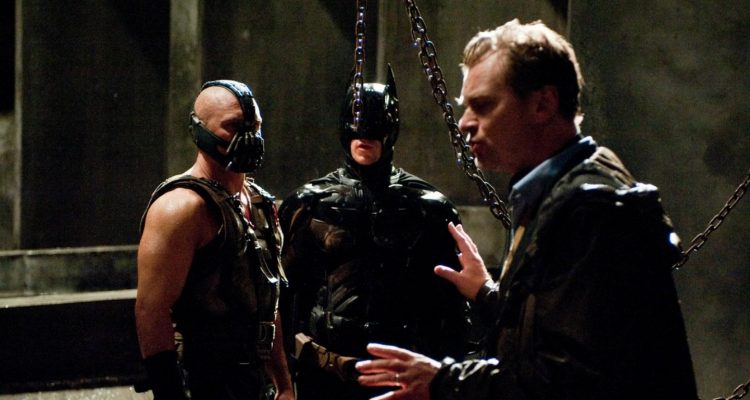 Christopher Nolan is a hard man to track down, but after some patience and persistence, we was lucky enough to sit down with the (to name just a few) “Memento,” “Prestige” and “Inception” director at length to discuss “The Dark Knight Rises,” his debut feature film “Following” and much more about his lauded Batman trilogy. You can read all that right here in part one of our talk, and continue with us as we dug deeper with Nolan into the mythology of his Batman films and his process for putting the pieces of his entire series together, all of which we’ve presented in a part two below.
Christopher Nolan is a hard man to track down, but after some patience and persistence, we was lucky enough to sit down with the (to name just a few) “Memento,” “Prestige” and “Inception” director at length to discuss “The Dark Knight Rises,” his debut feature film “Following” and much more about his lauded Batman trilogy. You can read all that right here in part one of our talk, and continue with us as we dug deeper with Nolan into the mythology of his Batman films and his process for putting the pieces of his entire series together, all of which we’ve presented in a part two below.
This week sees “The Dark Knight Rises,” the closing chapter in his Gotham-based trilogy, arrive on home video, and whether you’ve seen it already or are waiting to pop it into your DVD or Blu-ray player, Nolan’s thoughts are a solid primer before you re-discover the film or enjoy it for the first time. So below, the second and final part of our interview with the director, including his thoughts on the psychological and aesthetic underpinnings of the series.
“The engine of anarchy and chaos shapes things because ‘The Dark Knight’ is a very, very unconventional story.”
Could you walk us through the writing process with David Goyer and your brother Jonathan [Jonah]?
The films were each a little bit different. On “Batman Begins” David and I sat down and talked a lot about the history of the character. I talked to him about the film and he came up with a story and very quickly wrote the first draft because he had to go off to direct the [“Blade: Trinity”] film. So he managed to squeeze it in.
I then took that draft and rewrote it and involved my brother in that process as well. I would talk to him about what I was doing and get him to look at particular scenes. You know Jonathan contributed a lot to [“Batman Begins”] as well, although he’s not credited on the film. So when it came to “The Dark Knight” what I decided was to do it in a similar process. David and I came up with the story together and we handed that story to Jonah. He spent a very long time wrestling with that first draft of that movie which was extremely difficult. I then came on and wrote with him, sometimes on my own, sometimes with him and we tossed drafts back and forth. “The Dark Knight Rises” was the same process. Though Jonah was busy at that point and so I wound up doing more on my own. But, because he’s my brother he’s always at the end of the phone so he could squeeze in a little bit more.
It probably helps that he’s your younger brother too.
Exactly. I can always call him up and say, “You’ve got to help with this or that.” The contributions of both of them are immeasurable. David from his knowledge of the comics, he’s just a great storyteller.
 So how did David appear to you as the right choice to help co-conceive the Batman story?
So how did David appear to you as the right choice to help co-conceive the Batman story?
I had met him before and liked him and I just talked to him about Batman, he just had a great handle on these sort of big-picture emotions. Jonah and his writing is so precise in capturing the nature in “The Dark Knight” and how that engine of anarchy and chaos would shape the story because “The Dark Knight” is a very, very unconventional story. It really shouldn’t work, but it does. It does because of the veracity of the engine kind of driving it. There’s a point in the film where it just relentlessly does the same thing again and again and again.

